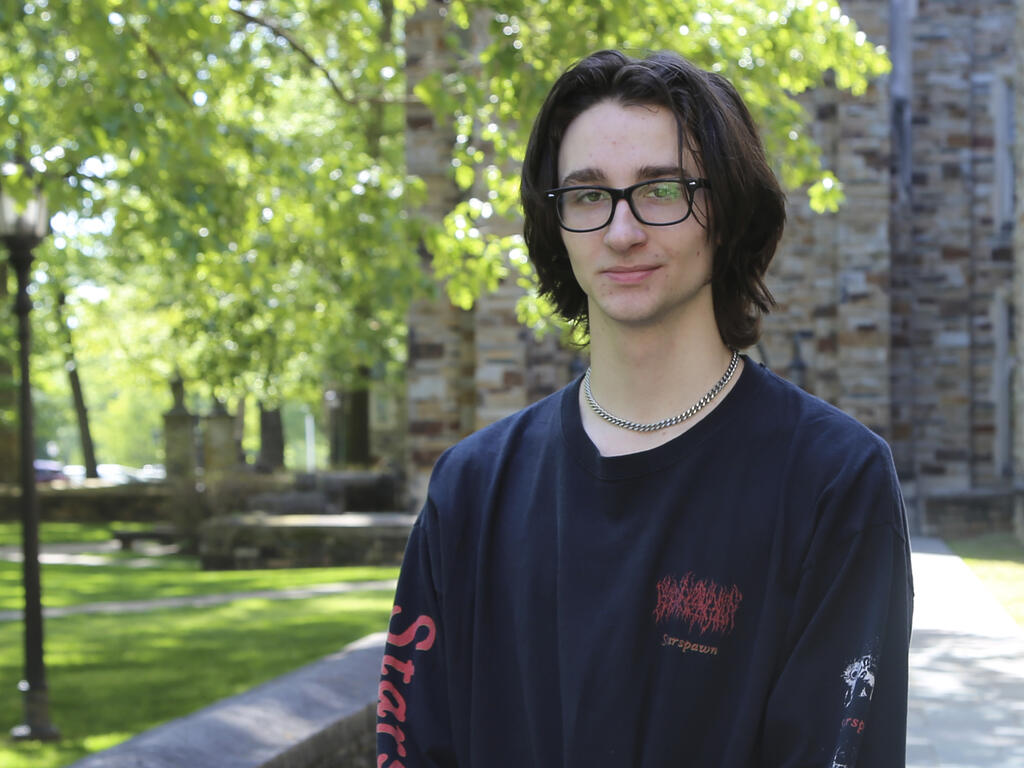One of Rhodes’ key goals as a liberal arts institution is to cultivate a robust range of study abroad programs and experiences for students. Fall 2022 marked the college’s first study abroad program offering in West Africa with the successful launch of Global Ghana, a joint program between Rhodes, Centre College, and Sewanee, providing students with the opportunity to live and study for a semester in Accra, Ghana. Asher Drummond ’25, a philosophy, politics, and economics major and French minor from Colorado, was among the first cohort to participate in the program.
Drummond’s interest in West Africa was what drew him to Global Ghana. The program featured mainly local professors, which was important to Drummond, who wanted to explore the political history and social infrastructure of Ghana from a non-Western perspective. He went into the program with some background about Ghana but no expectations about the experience. “I was unsure how it would affect me, and I think that's the best way to approach international travel,” says Drummond. “No matter what it ends up being, you’re able to appreciate it.”
Courses were exclusive to the program and were taught by both Ghanaian and U.S. professors. Students had the option to take four courses or three courses and an internship. The program also promotes interactions and collaborations between local students and program participants through projects, such as one course that assigned students to conduct a study involving Ghanaian students. Drummond and his teammate went to two local universities to survey students on their interests in politics, and it became an avenue for him to hold conversations that ultimately resulted in personally surprising insights.
“Overall, it was a very different spin on things than what I was taught,” Drummond says of the academic experience. “A lot of what I learned was the intricate history behind Ghana that you don’t necessarily learn from a Western perspective. You need to understand the biases of what you learn and take that into account. When you learn about these things at home and then go and hear it from the actual source, you hopefully get a holistic view of how things are.
“The most interesting thing is when you talk to people of different backgrounds, different educations, and different ages and ethnicity groups, and you ask them the very same questions, you can get very, very different answers. One example of that is the West’s involvement in Ghana,” says Drummond. “Things like the World Bank, the United Nations, or the European Union, which have huge investment or social development projects. In the U.S., they are often seen as inherently destructive due the nepotism, corruption, and the political ulterior motive of the recipients. But university students or people who have been educated on the subject in general in Ghana, though they echo the same sentiments, also have a very different spin on it. They concede that the country does need a lot of subsidies and a lot of help with infrastructure development and other problems. And so, even though there will be issues that arise from these programs, the choice they're making is to take the help when they can, because they don't really have much of a choice in a lot of instances.”
During the program students stayed with local host families and took trips within Ghana organized by the program. “I would describe Ghana as diverse, because there were many different languages and ethnic groups and, of course, many people from abroad because Accra is an important city in West Africa, and even the entirety of Africa,” says Drummond.
“I recommend Global Ghana to anyone that wants to visit a highly safe, accepting, and friendly country with a rich history and highly vibrant culture. An amazing nightlife, highly friendly citizens, and broad access to local cuisine and culture make the city of Accra a perfect place to host the program.”
By Tram Truong ‘24
Hear more about the Global Ghana program from Drummond in the video below.
